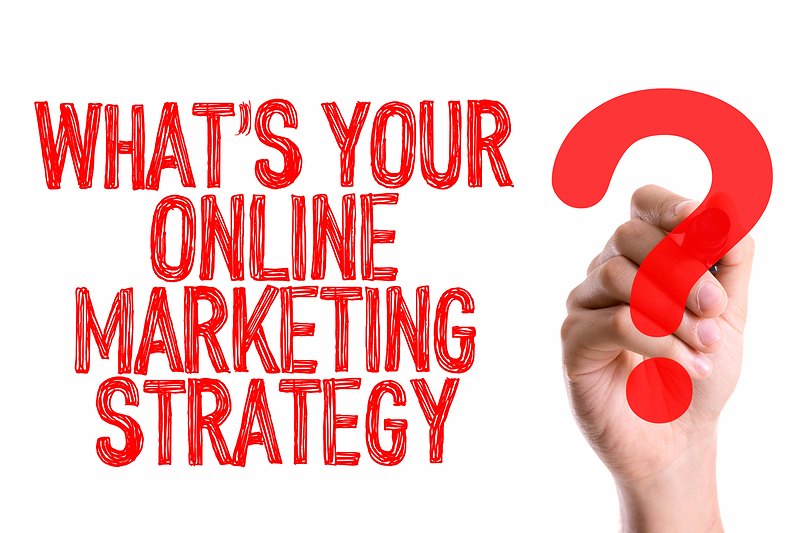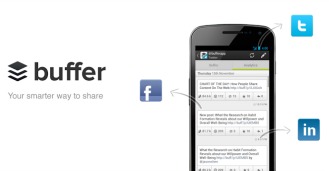The 5 Top Social Media Tools for Mental Health Practitioners

Do You Have a Social Marketing Strategy?
Because of the obvious positive results of social media marketing, mental health professionals have started to take a deeper look at social media marketing strategies. "How about you, are you taking a deeper look? Do you have a strategy?"
For the purposes of this article I am going to define “social media marketing strategty” as "the effective use of social media marketing tools in order to reach the intended results." My intentions are to introduce the top 5 social media tools that will not only improve your social media marketing efforts, but save you time and money too boot!
Knowing that you don’t have the time to find the best social media marketing tools to build your mental health practice, I have done it for you. Since my job is to help mental health businesses grow, and I actually love finding the best tools, I have conveniently provided you with the top 5 Social Media tools you must have. I hope to help you become a rock start social media strategist!
“Having a strategy helps a mental health business to better understand their marketing goals and objectives, as well as to measure the impact their social media marketing has on the growth of their practice.”
For all too many mental health practitioners social media marketing has been seen as a tactical function instead of a strategic one. Tactical functions are short-term singular actions, like making daily Facebook posts or Twitter tweets. Strategic functions on the other hand, involves long-term planning that encompasses various marketing tactics and techniques, along with the ability to measure and decipher results.
You might be thinking, "Really? Sounds overwhelming... So, tell me again why a social media marketing strategy is this important?" If you can’t answer this question then this article is designed for you. Read on, and let me show you why it is important.
Why is Social Media Strategy Important for Practitioners?
For starters, having a strategy will save you time, lower your cost, and improve your results. Social media strategies involve the use of tools, analytics, and reporting. Where as social media marketing is a series of actionable events, a social media strategy is a process of enhancing and improving the actionable events by having a defined purpose, plan, and the ability to measure results. It’s a kin to having a treatment plan before moving forward with therapy.
“Is being effective important to you? If so, doesn’t it make sense to measuring your social media results?”
I know several mental health practitioners who are ingenious social media marketers and advertisers. Their creative innovation is inspiring. These folks are inventive, resourceful, and imaginative. I call these the practitioners the “social media pioneers of the mental health world.” What is their secret? Simple… they’ve they use social media tools as their strategy. The only difference between you and these practitioners is that they made a plan and followed it.
inspiring. These folks are inventive, resourceful, and imaginative. I call these the practitioners the “social media pioneers of the mental health world.” What is their secret? Simple… they’ve they use social media tools as their strategy. The only difference between you and these practitioners is that they made a plan and followed it.
Melding Several Marketing Objectives Together into One Strategic Plan
As stated one of my objectives is to teach mental health professionals the value of having a social media strategy. If, through a social media marketing strategy, you are able to accomplish several business objectives simultaneously, save time and money, then having a strategy should make sense to you.
“I believe that only after you've determined why you are using social media marketing can one be successful.”
My suggestion is that a “strategy” will help your mental health business define your rationale for using social media in the first place. From there you can plot out a course that meets your needs, stays within your budget, and doesn’t take up all of your time! Therefore, it’s important to know why are you using social media, and what you are trying to accomplish? Plus, with a strategy you will know when you are successful.
So, before you get started with the suggested social media tools, answer these questions first.
- What is most important to you? Getting more clients, or branding your practice, or both?
- What is important to the success of your practice, building loyalty with referrers or improving client retention?
- What is your budget?
- How much time do you have to invest each week?
I believe you need to know the answers to these questions or there is no sense investing time or money into social media period. As stated before, having a strategy helps you to define your goals, make a plan to achieve them, and then measure your results. You do this so that you make adjustments to improve as you go. But unless you know your destination their is no sense in taking off.
So, what are your needs? What are you looking for? What is success to you? When you can answer these questions you are ready for the next step - which is to know the obstacles and pitfalls that prevent success.
Knowing Why Practitioners are not Using “Strategy” is Important Too!
Therapists, psychologists, substance abuse counselors and many other mental health practitioners have been using social media for almost a decade now. Many have learned to use social media in the hopes of building their mental health practice, services, or programs. Using social media is one thing, but having a strategy that leads to growth is completely different.
The important question is, “are they developing social media strategies?” And if not, “Why not?” Ask yourself this question.
The other question is… “why are mental health practitioners lagging behind other business owners in the strategic use of social media tools?” If they could be saving precious time and get a better ROI, why are they not doing so?”
 The simple answer is that mental health professionals are fearful to dive into the unknown, and mental health folks are not alone. The fear of the unknown is real for many professional people. The haunting question is, "where do I start and how do I get going?"
The simple answer is that mental health professionals are fearful to dive into the unknown, and mental health folks are not alone. The fear of the unknown is real for many professional people. The haunting question is, "where do I start and how do I get going?"
Learning something new, like "marketing strategy", takes a great deal of focus, effort, and time. The fear is that the learning curve is too steep, and it will take to much energy to learn. But that's not all.
Many professional people are uncomfortable with the prospect of "putting themselves out there." They are distressed by the notion of bringing attention to themselves or to make bold claims about their services. So they don't.
Mental health practitioners don't want to be seen as boastful braggarts, or arrogant blowhards. The prospect of being thought of as a showboat or a gloater is absolutely frightening. Generally speaking, mental health professionals are more comfortable being thought of as modest, unassuming, and even depracte.
The act of marketing is viewed to be self-promotion, and therefore in conflict with the personal values and professional conduct of many mental health professionals. This notion is unfounded, but understandable.
My recommendation to the modest professionals is to "get over it", and start thinking like a business owner. Seriously, if you want to build your practice you must think like a business owner. Businesses market their services, and the successful businesses do it well.
"Many therapists, psychologists, and professional counselors feel that "marketing" is too far outside of their wheel set, and are fearful to jump into something they know very little about."
Are any of these fears described above valid? Absolutely not, they are faulty perceptions. My job is to make it easier for mental health practitioners tap into the best marketing tools, techniques, and practices. So, le me do the research and investigation for you, and then teach you the basics. I have been able to make the difference for dozens of mental health practitioners, and I can do it for you too.
My job is to flatten the learning curve and help you get the most out of your marketing efforts. I highly recommend that you develop a marketing strategy, which is a well thoughtout plan you can follow, track, measure, and adjust. You will need the proper tools, and you'll have to face your fears.
Are you ready to get into the red meat of marketing? Are you ready to face your fears and build your practice? If so, take a serious look at using the the 5 tools below.
“In a nutshell, a social media marketing strategy is the use of tools that allow you as a business owner, to be more purposeful, effective, and a good steward of your time and other vital resources - it's a plan to succeed.”
Top Five Social Media Tools for Mental Health Businesses
Buffer - The Smarter Way to Share: Buffer is a social sharing platform that allows you to easily post or share to all your social networks at one time, in one swoop. You can load a post and schedule it to go out at the perfect time based on real-time analytics. Buffer tracks your post's overtime and then adds the results to their database. With this information Buffer is able to tell you the perfect time and cadence for posting. Knowing when to post and how often is half the battle.
The power of Buffer is that you can take the same post and send it out to Facebook, Twitter, Google+, and Linkedin, but at different times, and all of this is automated. The time each post is scheduled is based on each platform’s key indicators. Meaning, each social media network has the prime posting times. With Buffer you can post to each social media channel when your followers or fans are more likely to see it.
Buffer allows you to post to Twitter, Twitter groups, Facebook profiles, Facebook pages, as well as LinkedIn profiles, companies, and groups. Buffer supports Pinterest and Google+ too!
Sharing individual articles to your social network channels is easy. You only need to hit the Buffer button in your browser (Google Chrome Extension). If I find a cool article that I know my Twitter followers and LinkedIn connections will love, I can click on the Buffer browser button and the post is added to Buffer to go out at the perfect time. It takes 10 to 15 seconds and you're done.
Buffer provides incredible analytics, charting your post's performance which can be used to help make adjustments for improvements. By analyzing your post’s performance Buffer can help you to schedule future posts for optimal performance - it's called predictive performance.
Plus, Buffer integrates with Feedly, WordPress, and other RSS feed platforms allowing for bulk uploads and volume posts. To get started with Buffer, click here.
Likeable Local - Everything a social media marketer wants and needs: Likable Local is a content creation and content finder tool with access to thousands of post ideas and relevant content.
If you want to research topics through keywords and find great content to share, Likable Local is for you. Through keywords, social listening tools, and a content idea library you are able to find content that can be easily scheduled for posting later.
Likable Local provides robust tracking, reports, Easily find news updates and related topics to post to multiple social channels. There are lead generation tools for the advanced marketers.
To learn more about Likeable, and to get started, click here.
Feedly - The most powerful content curation tool on the Internet: Feedly is my favorite tool to find timely content from an endless sources. Feedly’s RSS aggregator allows you to gather and organize RSS from your favorite websites, blogs, news sources, and even Social Media channels.
Through a clean and easy to navigate dashboard, Feedly allows you organize all your favorite RSS feeds into collections. Collections can be  organized topic names, and you get to choose what to name them. Let’s say you want to organize all RSS feeds related to PTSD, or Depression, you can! Feedly is awesome!
organized topic names, and you get to choose what to name them. Let’s say you want to organize all RSS feeds related to PTSD, or Depression, you can! Feedly is awesome!
You can integrate Feedly with countless other Social Media and content apps, like Buffer. Through Feedly you pump content out be share to any and all of your social networks when it best suits you.
By using Feedly you can monitor any subject or topic from Google news including your own company name, or your competitors. To start using Feedly, click here.
Google Alerts - Monitor the online galaxy: Google Alerts is a keyword (topic) detection and notification service provided by Google. If you have a Google email account you can easily set up a Google Alert channel and receive timely emails from Google whenever they detect web pages, newspaper articles, blogs, or scientific research matching your important keywords.
When setting up your alerts you simply list anything and everything related to your practice, your clients, and your business. For example you can add “autism spectrum disorder”, “parents of autistic children”, or “research on Autism”. As you begin to receive the Google Alerts you can hone your key words and key terms until you get a constant flow of the best content.
For more information about setting up Google Alerts, click here.
Canva - Imagery is everything with Social Media: Incredible imagery through photos and graphic are always the most popular social media posts. If you have a great article that has an inspiring photo, you’re guaranteed to have better results on Social Media - Facebook, Twitter, LinkedIn, it does not matter. People are moved by image. Canva is the coolest way way to create dynamic images that pop.
Canta gives anyone the skill to create rockin images that inspire, move, and compel people to engage with your posts. With Canva you can add quotes, symbols, graphics, and custom logos. Need to crop and resize your images for the different requirements of Social Media channels? NO problem. Canva makes it easy. Canva is great tool for creating dynamic visuals that will make you look like a pro.
To get started using Canva, click here.
MailChimp - The Email Marketing Converting Machine: MailChimp is an email marketing and newsletter tool that will help you engage, retarget, and stay in close contact with your followers. By taking your best posts of the week you can easily create a newsletter and mail it out to all your followers (as long as you have properly gathered their names and email addresses through a self opt-in system).
Using email to deepen the relationship between you and your audience is like putting your social media on steroids. Through Social Media your goal is to build an audience of folks that trust you, and approve of your content. If your social media postings improve their life, they will follow you. If you can get your followers to give you their email address, they are telling you that you are trusted and valued.
Building up a list of email addresses from your fans is critical to your social media success. Email is the logical step that involves intimacy built on trust. Email helps you connect directly with your prospective clients. Through email you are able to offer them info, specials, and offerings not given to the general public.
If you want to dramatically improve your social media ROI, MailChimp is the marketer’s best friend. To set up your MailChimp account, click here.
In conclusion
The typical modern day mental health practitioner is able to build rich new referral sources using social media marketing tools. Essentially, SM tools allow practitioners to be more effective and reach more potential clients.
Using the basic social media tools allow behavioral health professionals to expand their online presence and grow their practice. Simultaneously they can build solid relationships with colleagues (enhancing referral sources), while branding themselves and their practice.
I propose that by using a few powerful social media tools you will take your social media efforts from singular tactical events to a prosperous grand strategy that works. By introducing a few incredible social media tools, you will be able to do more in less time, produce better results at a lower cost, and make better use of your time and money.
Therapy Insider Partners with Mental and Behavioral Health Businesses
Therapy Insider is uniquely positioned to help mental health practitioners and programs cultivate new streams of referrals through native advertising and social media marketing. For more information, click here.
"Therapy Insider provides professional behavioral health businesses with the tools and acumen to leverage high-quality content as a strategy to build enhanced referral systems."
By providing professionals with advertising, “best practices”, “how-to guides”, “realtime analysis”, and “curated content” Therapy Insider makes it easier for practitioners and programs to achieve cost-effective results through native advertising.
SPECIAL BONUS: Join Today and Get Your Own Blog
We Don't Just Make Your Business Visible Online...We Also Make YOU Famous! Publish Your Personal Articles for FREE!
The #1 way to gain instant credibility with potential clients is to publish articles online. Our powerful blog platform places your content directly into our news feeds, so you get noticed...and respected.
If you're not publishing regularly online, you are missing out on one of the greatest opportunities available for building your brand. People looking for your services want to know more about who they are dealing with, and reading your blogs, and informative articles help them build legitimacy and trust. Get Qualified Referrals From the Internet with ZERO Experience in Online Marketing.

